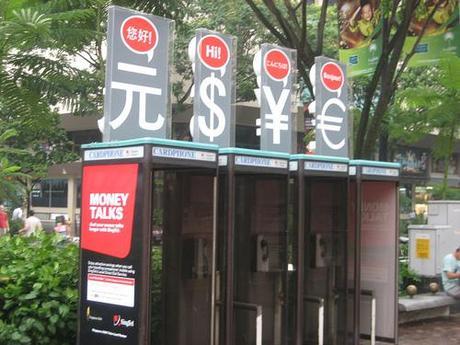 This debate follows the format of the New York Times’s Opinionator with a back and forth flow simulating our discussion.
This debate follows the format of the New York Times’s Opinionator with a back and forth flow simulating our discussion.
Wilson: We’ve been working under the assumption that “if it saves people money, they’ll adopt sustainable behaviors.” This very notion was mentioned in an article that ran in a past 2nd Green Revolution newsletter. I’m here to debunk that myth. I teach an undergraduate, entry level environmental science lab course at a major university located just off downtown and directly adjacent to two light rail lines. When I poll my students about their public transit habits each semester, the results are astonishing. As part of the student fees each and everyone of them is entitled to a transit pass. All they have to do is show their class schedule to the appropriate desk at the student union and they get the sticker. Now, they’ve already paid the fee. Furthermore, if they want to park on or near campus, they must pay an additional fee every time they drive to campus (there is no parking pass to my knowledge). Yet when asked how many drive to class, roughly half raise their hands. Granted only one or two have ever admitted not getting the pass. Let’s think about this for a moment. Students – roughly half – pay extra to park on campus, in addition to gas, maintenance, and assorted other vehicular expenses. When asked why, the responses often fall into the lazy/convenience category or work, which is related to convenience. If money, with gasoline at $4 per gallon, is not a motivator then I suppose we have to see what is.
Manger: Tomorrow I am going to go to George Mason University (GMU) around 4pm for a work related meeting. It’s out in Virginia. The professor said she could pick me up if I got out to the metro “near” the school by 3:30. We could also take a shuttle that takes 15-20 minutes from the metro. Instead, I will pay $12 to park at work and then probably pay again once I get to GMU. It’s worth it from a convenience standpoint. The time saved and frustration averted from not arranging all the logistics and not leaving work even earlier. Also, my colleague forgoes money by leaving early due to the hourly wage scale.

It’s money, sure, but I’m not going to pay for a product or service that is green but less convenient or a poor substitute for what I’m using now. For example, I wouldn’t buy this washer/dryer combo that the basement apartment (in which I was recently living) has because it takes hours – literally – to dry stuff, dries it poorly at that, and can’t handle a lot of clothes at once. I don’t care how quiet or eco or cool it is- I want my laundry to take less than 5 hours and not smell damp and moldy when I come home from work.
Wilson: Here’s the problem, they already “pay” for the transit pass. Granted, multi-modal transportation is weak (i.e. there is not always an easy bus close by to catch that leads conveniently to the light rail). The more diffuse the city, like Denver, the harder it is to connect to public transportation. However, one student in particular who lives close to campus and public transportation still chooses not to take it because he said he is lazy. For those who work (and hourly in your colleague’s case), it is not necessarily economical. Many of my students also work and this makes it difficult to take public transportation, but it is convenience not dollars that makes the decision. The cost of parking, gas, and the other vehicular expenses will outweigh the “free” transportation provided by their transit pass. I am not arguing this from an eco-perspective at all, but rather making the claim that these people do NOT choose the more economical model and eschew it for convenience, which unfortunately flies in the face of what we believe (namely that saving people money will be enough to get them to switch from more consumptive behaviors).
Manger: Money is one motivator. I think it is a deciding factor sometimes for some people. Just as technology or behavioral change is the impediment for some people in some situations, so is convenience or cost in choosing one alternative (in this case the environmentally friendly one) over another.
Final rejoinder and mutual conclusion: Here lies perhaps the greatest stumbling block to sustainable development. Behavioral change (see this recent post) and human nature stand directly in the way of an economically, socially, and environmentally sustainable world.
